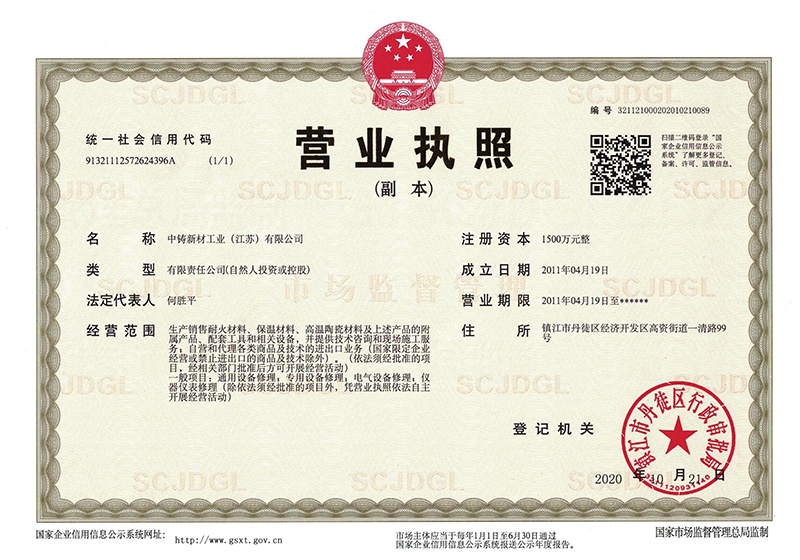News
SINO-FOUNDRY—professional refractory manufacturer
How Coil Grout Enhances Energy Efficiency in Metallurgical Operations
2025-09-21
How Coil Grout Enhances Energy Efficiency in Metallurgical Operations Table of Contents Introduction to Coil Grout in Metallurgy Understanding Coil Grout: Composition and Properties The Importance of Energy Efficiency in Metallurgical Operations The Role of Coil Grout in Energy Management Applications of Coil Grout in Metal Processing Benefits of Using Coil Grout in Metallurgical Oper
How Coil Grout Enhances Energy Efficiency in Metallurgical Operations
Table of Contents
- Introduction to Coil Grout in Metallurgy
- Understanding Coil Grout: Composition and Properties
- The Importance of Energy Efficiency in Metallurgical Operations
- The Role of Coil Grout in Energy Management
- Applications of Coil Grout in Metal Processing
- Benefits of Using Coil Grout in Metallurgical Operations
- Case Studies: Successful Implementation of Coil Grout
- Future Trends in Coil Grout Technology
- Frequently Asked Questions
- Conclusion
Introduction to Coil Grout in Metallurgy
In the ever-evolving world of metallurgy, **energy efficiency** stands as a critical factor driving operational costs and environmental impact. Among the innovative solutions emerging in this sector, **coil grout** has gained attention for its ability to enhance energy efficiency in metallurgical operations. This article delves into the mechanics of coil grout, its applications, and its significant advantages in reducing energy consumption and optimizing performance in metal processing facilities.
Understanding Coil Grout: Composition and Properties
Coil grout is a specialized material designed for use in various industrial applications, particularly in the metallurgical field. Made from a mixture of fine aggregates, additives, and binders, coil grout exhibits unique properties that make it suitable for high-temperature environments and heavy structural loads.
Key Components of Coil Grout
The primary components of coil grout include:
- **Cementitious materials**: These serve as the primary binding agents, providing strength and durability.
- **Fine aggregates**: Typically composed of silica sand or other similar materials, these aggregates improve the grout's workability and thermal properties.
- **Additives**: Various chemical additives may be included to enhance specific performance characteristics, such as flowability, setting time, and resistance to heat.
Physical and Thermal Properties
Coil grout demonstrates:
- **High thermal conductivity**, which aids in effective heat transfer during metallurgical processes.
- **Low shrinkage properties** that minimize cracking and maintain structural integrity over time.
- **Chemical resistance**, ensuring longevity and reliability in harsh environments.
The Importance of Energy Efficiency in Metallurgical Operations
Energy efficiency is not merely a regulatory requirement; it also represents a vital opportunity for metallurgical plants to reduce costs and enhance sustainability. With energy expenditures constituting a significant portion of operational budgets, even minor improvements can lead to substantial savings.
Environmental Impact
By improving energy efficiency, metallurgical operations can significantly reduce their carbon footprint. Lower energy consumption translates to fewer greenhouse gas emissions, aligning with global efforts to combat climate change.
Economic Benefits
Enhanced energy efficiency leads to:
- **Reduced operational costs**: Lower energy bills directly affect the profitability of metallurgical operations.
- **Increased competitiveness**: Companies prioritizing energy efficiency can gain a competitive edge in a market increasingly focused on sustainability.
The Role of Coil Grout in Energy Management
Coil grout plays a pivotal role in energy management within metallurgical operations. By applying coil grout technology, facilities can achieve significant enhancements in energy utilization through improved insulation and heat retention.
Insulation Properties
The thermal insulation properties of coil grout reduce heat loss during high-temperature metallurgical processes. This capability is crucial for operations such as smelting and refining, where maintaining optimal temperatures is vital for efficiency and product quality.
Seamless Integration
Coil grout can be easily integrated into existing systems, providing an effective solution without the need for extensive modifications. This adaptability makes it a practical choice for many metallurgical plants looking to enhance their energy efficiency.
Applications of Coil Grout in Metal Processing
Coil grout finds various applications in metal processing, showcasing its versatility and effectiveness in enhancing energy efficiency.
Use in Furnaces and Kilns
Furnaces and kilns are crucial components in metallurgical operations, and coil grout is often used to insulate these structures. Its high thermal resistance minimizes energy losses, thereby optimizing fuel consumption and reducing costs.
Structural Support
Coil grout provides structural support for metal components in processing equipment. By enhancing load-bearing capabilities, it ensures the safe and efficient operation of machinery while minimizing energy wastage.
Benefits of Using Coil Grout in Metallurgical Operations
The benefits of incorporating coil grout into metallurgical operations are numerous and impactful.
Enhanced Energy Efficiency
The primary advantage of coil grout is its ability to improve energy efficiency significantly. By reducing heat loss and improving insulation, metallurgical facilities can achieve substantial energy savings.
Cost-Effectiveness
Investing in coil grout can lead to lower operational costs over time. The initial investment is often recouped through reduced energy bills and maintenance costs associated with improved structural integrity.
Improved Operational Performance
With enhanced insulation and structural support, metallurgical operations can achieve higher levels of productivity. This improvement contributes to better overall performance and product quality.
Longevity and Durability
Coil grout's chemical resistance and low shrinkage properties contribute to its longevity, reducing the frequency of repairs and replacements. This durability further enhances its cost-effectiveness over time.
Case Studies: Successful Implementation of Coil Grout
Several industries have reported success stories following the implementation of coil grout in their metallurgical operations.
Case Study 1: Aluminum Smelting Plant
An aluminum smelting plant implemented coil grout to insulate its furnace. As a result, the facility reported a **25% reduction in energy consumption**, leading to substantial cost savings and a lower environmental impact.
Case Study 2: Copper Refining Facility
A copper refining facility utilized coil grout for structural support in its processing equipment. This application resulted in a **15% increase in operational efficiency**, with reduced downtime and enhanced product quality.
Future Trends in Coil Grout Technology
As metallurgical operations continue to evolve, so too will coil grout technology. Emerging trends include:
Smart Grout Solutions
The integration of smart technologies into coil grout systems will enable real-time monitoring of performance metrics, allowing facilities to optimize their energy usage further.
Eco-Friendly Formulations
Future developments may focus on creating eco-friendly coil grout formulations that minimize environmental impact while maintaining superior performance.
Frequently Asked Questions
1. What is coil grout?
Coil grout is a specialized material composed of aggregates and binders used in metallurgical operations to enhance insulation and structural integrity, improving energy efficiency.
2. How does coil grout improve energy efficiency?
Coil grout minimizes heat loss and enhances insulation in high-temperature environments, leading to reduced energy consumption in metallurgical processes.
3. Where is coil grout commonly used?
Coil grout is often used in furnaces, kilns, and structural supports within metallurgical facilities, particularly in processes like smelting and refining.
4. What are the economic benefits of using coil grout?
Coil grout helps lower energy bills, enhances operational efficiency, and reduces maintenance costs, ultimately contributing to greater profitability.
5. What trends are shaping the future of coil grout technology?
Emerging trends include the development of smart grout solutions for performance monitoring and eco-friendly formulations that prioritize sustainability.
Conclusion
Coil grout represents a transformative solution for enhancing energy efficiency in metallurgical operations. By combining superior thermal insulation properties with structural stability, coil grout not only helps reduce energy consumption but also supports the economic and environmental goals of modern metallurgical facilities. As industries continue to seek innovative ways to optimize performance and sustainability, the adoption of coil grout will undoubtedly play a critical role in shaping the future of metallurgy.
Related News
2024-11-05
Zhongzhu New Materials Industry sincerely invites you to participate in the 24th International Forum and Exhibition on Recycled Metals.

WeChat public account

View mobile website
Address : No. 99, Yiqing Road, Gaozi Street, EconomicDevelopment Zone, Dantu District, Zhenjiang City
Fax : +86-511-85683066
E-mail : sales@sfr168.com
Website : https://www.sfr168.com
Copyright©2023 Sino-Foundry Refractory(Jiangsu) Co.,Ltd. Powered by:www.300.cn
Copyright©2023 Sino-Foundry Refractory(Jiangsu) Co.,Ltd.
IPV6 | SEO | Cloud Information



